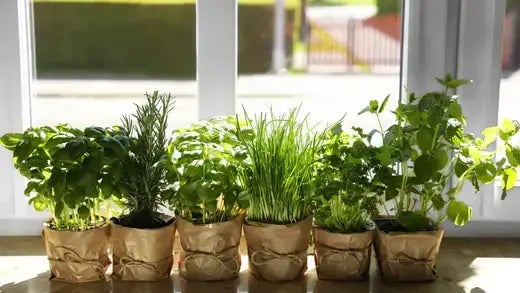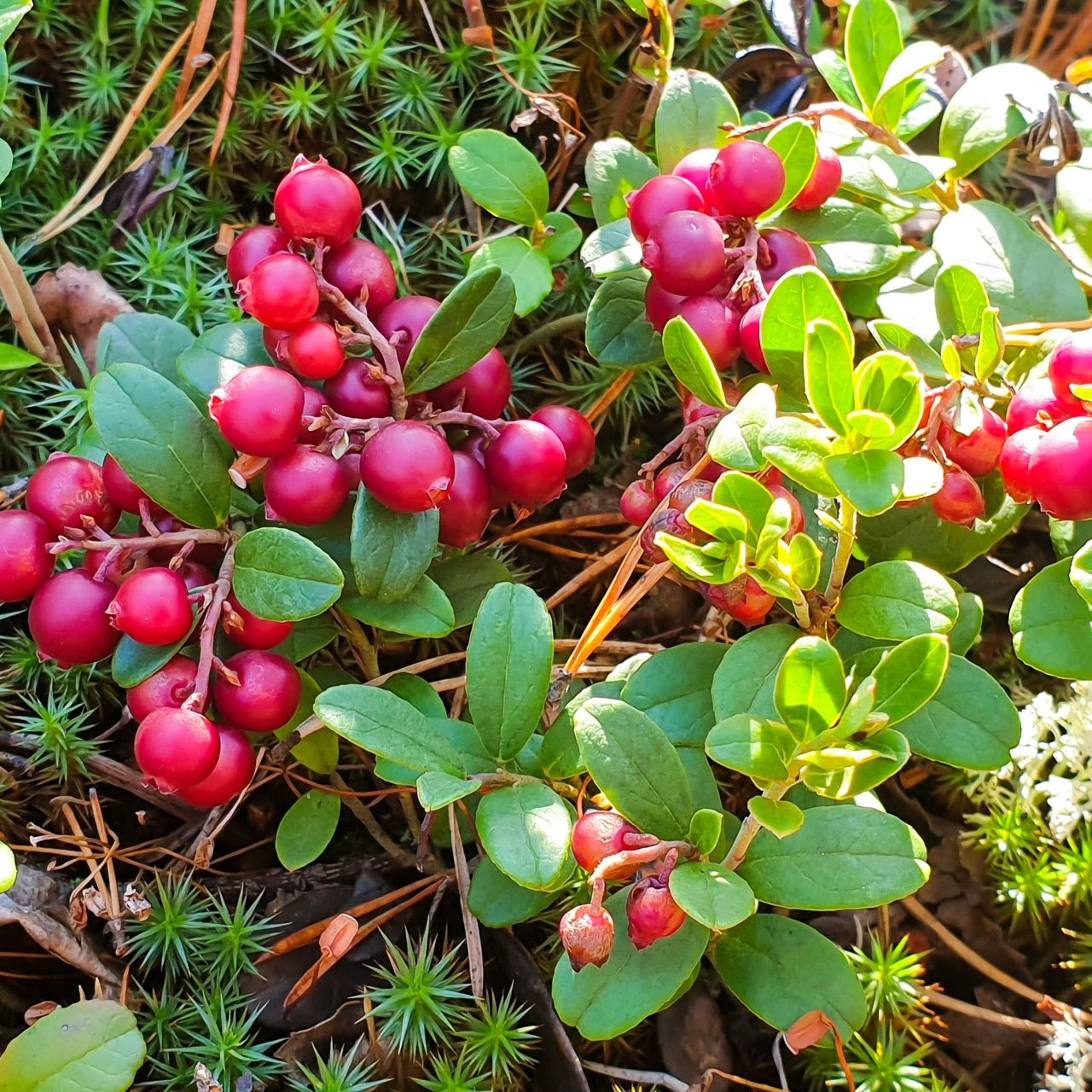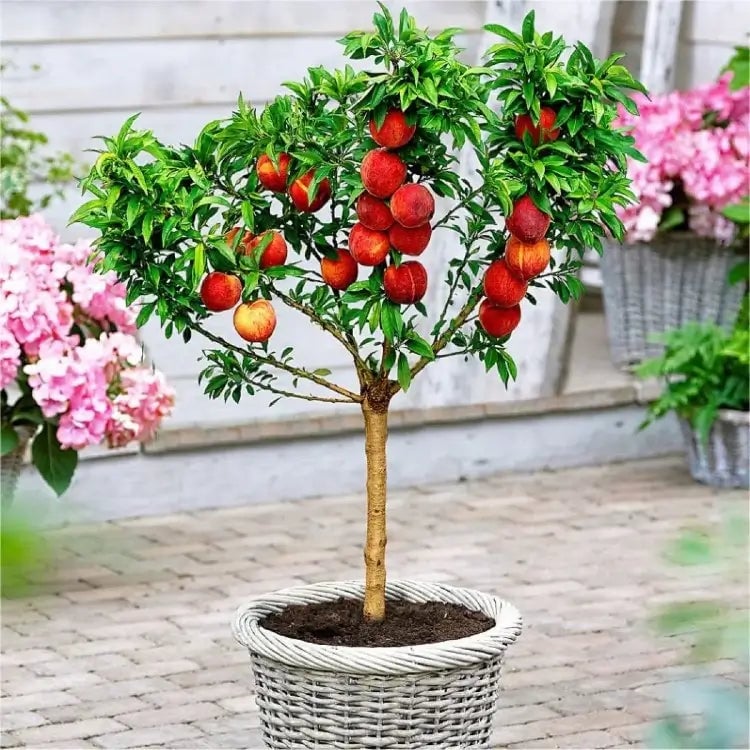10 Tips for Successfully Growing Fresh Herbs Indoors
Introduction: Growing fresh herbs indoors can be rewarding and practical, allowing you to enjoy a steady supply of flavorful and aromatic herbs year-round. Whether you have limited outdoor space or want easy access to herbs in your kitchen, indoor herb gardening offers numerous benefits.
This article will explore ten tips to help you cultivate a thriving indoor herb garden. Choose the Right Herbs: The right herbs are crucial for a successful indoor garden. Opt for herbs well-suited to indoor conditions, such as basil, mint, parsley, cilantro, chives, and thyme.
These herbs generally adapt well to lower light levels and confined spaces. Find the Ideal
Location: Place your herb garden near a window that receives adequate sunlight. Herbs typically require around 6 hours of daylight daily, so south or west-facing windows are ideal.
Provide Proper Drainage: Ensure your herb pots have proper drainage holes to prevent overwatering. Use pots with saucers or trays to catch excess water, preventing root rot. Well-draining potting soil is also essential to maintain healthy root systems.
Choose the Right Containers: Select appropriate containers for the size of the herb and the available space. While many herbs can thrive in smaller pots, others, like basil, might need slightly larger containers.
Water Wisely: Overwatering is a common mistake in indoor herb gardening. Herbs prefer slightly dry conditions between watering. Water your herbs when the top inch of soil feels dry. Be sure to keep the plants from sitting in standing water.
Fertilize Mindfully: Indoor herbs benefit from occasional fertilization. Use a balanced, water-soluble fertilizer diluted to half-strength every 4-6 weeks. Avoid over-fertilizing.
Prune Regularly: Pruning is essential for maintaining the health and productivity of your indoor herbs. Harvesting leaves also promotes new growth and ensures you have a fresh supply for culinary use. Manage Humidity: Indoor environments can sometimes become dry. To maintain proper humidity levels for your herbs, consider using a humidity tray filled with water and pebbles. Misting the plants can also help.
Keep an Eye on Pests: Indoor herbs such as aphids, mealybugs, and spider mites can still fall victim to pests. Regularly inspect your plants[if you spot any, take action promptly. You can use remedies like neem oil or insecticidal soap to control infestations.
Rotate for Balanced Growth: Rotate your herb pots every few weeks to even exposure to sunlight. It prevents one side of the plant from growing toward the light source and becoming uneven or leggy. Conclusion: Growing fresh herbs indoors is a delightful way to enhance your culinary experiences while adding a touch of greenery to your living space.
Following these ten essential tips, you can create a thriving indoor herb garden with a continuous supply of aromatic and flavorful herbs throughout the year
Remember that each herb has unique requirements, so observing and responding to your plants' needs will contribute to your success as an indoor herb gardener.
Whether you're a seasoned gardener or a beginner, the joy of nurturing herbs, from seedlings to lush plants, is an immensely satisfying journey. Herbs have been cherished for centuries, revered for their culinary, medicinal, and aromatic properties. In the context of an indoor garden, their importance takes on new dimensions.
These plants possess qualities that make them particularly well-suited for indoor cultivation, and their incorporation into indoor gardens can turn a simple windowsill into a culinary haven and a sanctuary for relaxation.
Culinary Delights: The flavors and aromas that herbs infuse into dishes are unparalleled.
Basil enlivens pasta and salads with its vibrant green leaves and distinctive aroma.
Rosemary's woody fragrance and earthy taste elevate roasted vegetables and meats. Indoor gardens grant us access to these fresh flavors year-round, irrespective of weather conditions or the limited space of an apartment. The convenience of harvesting herbs before cooking ensures a flavor that dried alternatives can't match.
Aromatic Ambiance: Beyond culinary applications, herbs can transform indoor spaces into sensory retreats.
Lavender, known for its calming properties, infuses rooms with a soothing scent, promoting relaxation and better sleep. With its refreshing aroma,
Mint revitalizes the atmosphere and can even help with focus and concentration. Individuals can create a dynamic, aromatic environment that supports their well-being by cultivating herbs indoors.
Health and Wellness: Herbs have long been recognized for their potential health benefits. Aloe vera, for instance, is a potent natural remedy for skin issues and burns.
Chamomile offers relaxation and aids digestion. Growing these herbs indoors ensures a ready supply of natural remedies, enriching our lives with holistic wellness options.
Air Quality and Oxygen Enrichment: Incorporating herbs like Basil, mint, and thyme into an indoor garden can enhance air purification, making the indoor environment healthier and more refreshing.
Connection to Nature: In bustling urban environments, the opportunity to connect with nature can be limited.
Indoor gardens bridge this gap, offering a chance to nurture and care for living organisms.
Herbs, with their diverse growth patterns and responsiveness, create a sense of connection to the natural world. Tending to these plants fosters mindfulness and a renewed appreciation for the beauty of growth.
Design and Aesthetics: Herbs contribute not only to our senses but also to the visual appeal of indoor spaces. Their varying textures, colors, and growth habits can be artistically arranged to create visually striking indoor gardens. Whether suspended in hanging pots, adorning windowsills, or showcased on shelves, herbs add an element of elegance and vibrancy to interior design. In conclusion, the importance of herbs in the context of indoor gardening cannot be overstated.
Selecting the right herbs and providing them with proper care fosters a harmonious environment where plants and people flourish. With a diverse array of herbs at one's fingertips, cultivating a successful indoor garden becomes a journey of discovery, creativity, and enrichment.
Crafting the Perfect Space for Fresh Herbs All Year
Establishing a unique space for herb cultivation at home provides an economical solution that improves cooking flavors while introducing peaceful design elements into your living area. Designing a particular area for herb growth enables you to establish ideal growing conditions and make plant maintenance more efficient than randomly placing pots on a windowsill. This guide is here to help you create a herb nook indoors that successfully combines functionality and visual appeal while maintaining plant health regardless of the size of your living space.
Start by evaluating your home to identify possible spaces where you could grow herbs. The basic foundation for an herb nook includes a sunlit kitchen corner or a bright living area spot and a spare nook next to a large window. The most critical factor is lighting: At least six hours of direct sunlight or intense indirect light each day is essential for growing culinary herbs like basil, thyme, oregano, and rosemary. A nook close to a south- or west-facing window with ample sunlight exposure will significantly contribute to the health of your herbs. To maintain healthy growth for your herbs, you must use artificial growth lights as a supplement. LED grow lights provide affordable energy savings while offering diverse sizes and styles to integrate seamlessly into your home decor.
After you find the right location, think about how you will organize and set up the herb nook. A simple shelving unit with adjustable shelves can be installed on a flat wall to enable you to adjust pot positions according to plant height variations. Find a corner stand or a small bookcase and turn it into a container for multiple herb planters. A vertical hydroponic system or mini indoor greenhouse cabinet presents a stylish option for those ready to commit to more significant structural investment. Choose any setup, but ensure each plant pot has ample surrounding space to allow good airflow, preventing fungal problems and pest invasions.
Consider selecting the containers that will work best for your herb nook. Individual pots often provide superior results to large communal planters because various herbs require different watering schedules. Terracotta pots provide classic appeal and porous functionality, allowing the soil to dry out evenly, but glazed ceramic or plastic containers offer easier cleaning and decorative options. Every pot needs a drainage hole to avoid waterlogging, irrespective of its material composition. Utilizing trays or saucers underneath pots will safeguard your shelves or flooring from unwanted moisture buildup. To achieve a unified aesthetic across your space, choose plant pots that feature colors or designs that match your existing home decor. Using different containers together will create a relaxed and vibrant atmosphere in the nook.
Attention now turns toward creating an appropriate environment following the placement of structural elements and containers. A temperature range between 65–75°F (or 18–24°C) is optimal for herb growth because this range matches typical indoor temperatures. Take caution against drafts coming from doors and air-conditioning vents since sudden temperature shifts can harm your plants. Humidity is another factor: Most herbs grow better when exposed to moderate to higher humidity levels, and placing them in or near the kitchen helps maintain these conditions because cooking methods like boiling water produce steam. Use small humidity trays beneath your herb pots for homes with low humidity levels since a shallow dish filled with water and pebbles will generate beneficial moisture through evaporation.
Lighting needs are paramount. When natural light is sufficient, keep track of how sunlight changes in the nook across different times of day and seasons. Drastic changes in sunlight angles may necessitate rearranging your plants. When natural sunlight proves inadequate, set up a grow light that fully illuminates the space. Under-shelf positioning or wall hanging are both suitable placements for LED grow panels or strip lights. Aim for a timer system to ensure consistent exposure: Culinary herbs need a daily light exposure between 12 and 16 hours for optimal growth. Your plants can avoid guesswork through this automated schedule while sustaining a healthy growth cycle.
Herbs remain strong and healthy when proper watering techniques are applied. Root rot develops from excessive watering, while insufficient watering results in wilting and stunted plant growth. The optimal watering point is achieved when you water after the top inch of soil has dried. Complete irrigation must continue until water passes through and emerges from the bottom. Remove all water that remains in saucers to prevent excessively damp conditions. To ensure proper watering practices when growing thirstier herbs like basil and drought-tolerant ones like rosemary, group plants with matching water requirements on the same shelf. A typical watering schedule allows you to manage plant care effectively while reducing potential mismanagement.
The effectiveness of a dedicated nook improves through careful organization and regular maintenance. Plant markers or adhesive labels on pots enable you to monitor each herb’s progress and requirements. Rotate your pots regularly to ensure plants get uniform light exposure, which is crucial if your nook has uneven lighting conditions. Applying a balanced, water-soluble fertilizer sparingly at half-strength every four to six weeks supplies adequate nutrients while preventing excessive growth. Regular trimming and harvesting of herbs results in bushier plants and produces fresh, flavorful foliage. Removing flowers from herb plants like basil stops them from focusing energy on seed production.
Ultimately, take the time to appreciate the beauty inside this indoor sanctuary. An adequately designed herb nook transforms a practical space into a soothing home corner while infusing daily life with visual appeal and aromatic presence. Use small decorative items such as figurines, candles, and framed prints between your herb pots to improve aesthetic appeal but avoid creating a cluttered space. Ensuring proper airflow and convenient access for watering and harvesting is the foremost priority. After months pass, your herb nook transforms into an integral and treasured element of your living space, which continues to deliver fresh kitchen ingredients and maintains a restful green area that embodies perpetual growth and energy.
Read more

A pear tree can add a lot to your garden - and can make a lovely border around a yard. Pear trees are not complex to get to grow. Choose a healthy-looking pear tree to begin with.

Natural pesticides for your plants and trees are the best thing. Using natural pesticides will also be great for our environment. Natural pesticides come in several varieties. You may plant small p...




